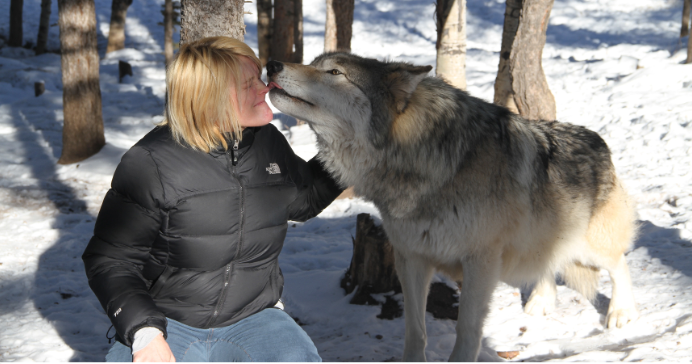By Carol Grojean (originally on her blog)
Deep ecology, according to Wikipedia, “is a contemporary ecological and environmental philosophy characterized by its advocacy of the inherent worth of living beings regardless of their instrumental utility to human needs…” Deep ecology argues that the natural world is a subtle balance of complex inter-relationships in which the existence of organisms is dependent on the existence of others within ecosystems. Which is pretty much the basis of my PhD research, specifically the human and leadership behavior within our current anthropocentric (egoist) way of living and our desperate need to move from “I-It” (subject-object) relationships and move towards a more “I-Thou” (self in relationship with other) way of being with others and the world around us. This has been a journey my personal experience as I stepped away from the corporate world and shed all external definitions of myself to see who I truly was and is a movement I am deeply passionate about.
What deep ecology is not is environmentalism, at least ‘not’ relative to how we think about conservation and sustainability today, and these differences have significant implications. Contrary to the popular and mainstream environmentalist thinking, deep ecology asserts that no amount of education of the populace, change in public policy, or technological advancement will get us safely out of our current perilous ecological predicament. These efforts by themselves are misguided and ultimately ineffective attempts because they are based on a misunderstanding of the fundamental problem – our human behavior and how we perceive ourselves independent of all other things… we live an “I-It” relationship with everything around us.
The issue with traditional approaches to environmentalism is that they do not question any of today’s underlying assumptions about human separateness from or domination of nature. Instead, these solutions merely serve to allay our concerns about environmental destruction, while, sadly, reinforcing our dependence upon technological fixes, allowing us once again to go on our way by using our powers to dominate and control more effectively. Deep ecology believes that until we make the necessary changes in the way we deal with our relationship to the world around us, we will remain deeply entrenched in our tragically mistaken, anthropocentric, human-nature dualism. From the point of view of deep ecology, what we have done is crawled out on a technological limb, and the shakier the limb gets, the tighter we hold on. Traditional mainstream environmentalism thus embraces the very assumptions about nature that give rise to the ecological problems in the first place.
Deep ecology asserts that if we continue to see ourselves as separate from and above nature, and if we consequently relate to nature only in terms of its instrumental value to us, then whenever human needs are perceived to be in conflict with environmental needs the only appeal will be to some externally imposed, problematically debatable, axiologically based system of environmental ethics. And this is precisely the situation today.
All differences in this world are of degree, and not of kind, because oneness is the secret of everything. – Swami Vivekananda
Carol Grojean MA, MS, MBA is an Organizational System Design and Project Leadership expert with 20 years’ experience driving large, complex, organizational change initiatives. Carol is working on her PhD in Existential Leadership Transformation & Deep Ecology – Shifting leaders from an Egocentric way of doing to Ecocentric way of being in our world… Questing for a new way of healing the Western world thru our collective indigenous wisdom and reconnection to the natural world.
My philosophy is that only through opening up a window in to our mental models, translating our individual perceptions into explicit pictures, can we begin to reveal subtle yet meaningful differences in viewpoints and create a space for all to be in balance between doing and being, self and other in our families, organizations, and communities.

